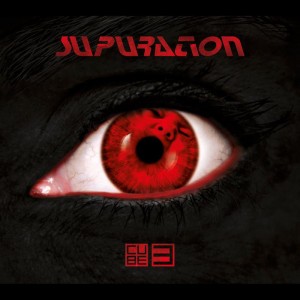 During the early 1990s, death metal was subject to criticism because people feared it. They would claim that the bands couldn’t play, or didn’t know their scales, or were otherwise incompetent.
During the early 1990s, death metal was subject to criticism because people feared it. They would claim that the bands couldn’t play, or didn’t know their scales, or were otherwise incompetent.
One of the first bands to thwart this vision was France’s Supuration, a former grindcore/death metal band who gradually modified their style as they grew more proficient with their instruments. The result was a mixture of rock, pop, death metal and progressive music.
The Cube, Supuration‘s most famous work, introduced sci-fi concept album planning into the fertile mix of metal and progressive rock. Over the last 20 years, the fame of this legendary album has only increased as more people discover it and are able to understand it, now that an intervening two decades of progressive metal have made it easier.
This year, Supuration launched Cube 3, their follow-up to the original album and a means of uniting the storyline of intervening albums. We were fortunate to get to talk to Ludovic Loez, guitarist with this groundbreaking band.
You started out as a death metal or grindcore band, and then made the change to a progressive/rock/metal style; what spurred this change? Did your interests change, or did the newer style fit your interests?
After the recording of The Cube album and Still in the Sphere MCD, we decided to change our style. We didn’t want to record another The Cube in the same vein; we tried to create a more experimental music, with no limits for us. We like SUPURATION a lot but we thought that a second album in the same veins would not be cool for us, that’s why we created S.U.P.
How important do you think style is in the creation of music? Can someone make the same album in any style, or does the style fit the music? How does this relate to individual songs — does song structure need to fit the song, or is there a way to say the meaning of any song in any song structure?
I think the structure is quite important for a song; we are trying to be original, we all love death metal style in the band, but we also like new wave music and VOIVOD for example. If you listen to our three SUPURATION albums, you’ll find the same structures: each album is linked to each other; for the S.U.P albums, each album is a story, but the structures of these albums are different even if it’s the same way of writing songs for both bands.
You’ve obviously spent a lot of time listening to metal and studying its riff forms, but there’s other elements in there in addition to your own “home grown” outlook and style. You’re probably tired of people asking this, but what are your influences??
As I told you we are into new wave of the 80’s, real gothic music like THE SISTERS OF MERCY, VOIVOD, old PESTILENCE, DEPECHE MODE and sometimes electro music coming from Germany. We are also into original soundtrack, music scores…
Do you think the death metal style easily transitions to progressive rock? What do you see as the similarities between the two? Is progressive rock — most people don’t know that Tony Iommi was briefly in Jethro Tull, or that King Crimson’s first album was an influence on Sabbath — a part of metal, encoded into its DNA?
I think you’re right, in each style of music you can hear a “small” part of metal especially nowadays with the evolution of music in general…The way to the progressive rock is natural I think, except for brutal death bands like SUFFOCATION or CANNIBAL CORPSE and so on, it’s certain that they won’t turn into progressive [music]. It’s a choice, everyone have the choice especially in music.
A compilation of your early works, Back From the Crematory, was released in 2011 and seemed to spur some interest in the early years of the band. What first attracted you to grindcore and death metal?
CARCASS, NAPALM DEATH, OLD. We were quite young at that time and we were into grind core and death metal, when xtreemmusic asked us to put out our first work with ETSICROXE and early SUPURATION, we were really excited. Imagine your old demos and rotten live on a cd more than 20 years after…amazing and exciting…
You split the band into two entities, “Supuration” which was more metal, and “S.U.P.” which was more future pop/rock/progressive. Why did you make the split? Were you able to keep the two separate? How much did they converge, or become similar?
They’re sometimes similar, the voice for example. We created another the band because after the “success” we had with The Cube, we didn’t want to record a “Cube II” the year after. We wanted to create something new with music. The two bands are two different entities, but same members and same songwriter, so both are sometimes similar and different at the same time.
Have you seen interest in Supuration renewing itself recently? Why do you think this is?
I think it’s great!! With the new record company it’s quite easier. We had had a small renewal with the prequel of The Cube called Incubation in 2003. We have good reviews — I think the result is quite correct, that’s a good thing for us…
I have known relatively few albums that attract the kind of devotion that The Cube has. What do you think makes that album stand out, and what do you like about it most?
Its story, its concept, its futurist cover; this album realized in 1993 had a big success in general I can’t explain why…but it’s cool….
You’ve just released Cube 3, which alludes to the original The Cube. Do you think it’s a continuation of what was done on The Cube, a re-envisioning, or an entirely new direction using parts of the same storyline?
Cube3 is dealing with the end of the story [from] The Cube. Between these albums we recorded Incubation which is a prequel to The Cube, I mean the story before. If you want to hear the whole story you have to listen to Incubation first the reasons of the suicide of the young girl, then The Cube with the journey of the tormented soul throughout strange places and Cube3 which deals with the reincarnation of the soul of The Cube album.
Most of your albums seem to be conceptual, or united around a story or idea. Can you tell us about the storylines in your albums? Was there a consistent story idea through all of your works?
I would say, in most of our stories in our albums, the relation between the mother and is child is reccurent. You’ve got this relation in the whole story of The Cube, in “Anomaly” (S.U.P, science fiction dealing futurist machines that kills babies linked to a overpopulation in the future), “Room Seven” (S.U.P, story dealing with an autistic child and his mother), “Chronophobia” (S.U.P, twins separated at birth, mother killed in a carcrash), “Angelus” (S.U.P, quite different, dealing with the lost of faith in god and extraterrestrial life after death), “Imago” (S.U.P, also different, dealing with a futurist drug that makes a self regeneration after a serious disease or cancer, but quite dangerous if you take it twice) and “Hegemony” (S.U.P, dealing with a neovocyt, a new vegetal/human being who is trying to run away with the head of his mother throughout a searing desert somewhere in time on another planet).
Nothing sounds like Supuration — nothing! However, if I had to pick the closest, I’d point toward the first albums from Obliveon and Dead Brain Cells (DBC), and maybe mention some of the middle period Voivod material (Dimension Hatross). Do you find these bands similar? Is it odd, or perfectly rational, that they would have a similar sound to you? Does the fact that all of you are from French-speaking areas have anything to do with it?
I only know VOIVOD, I do not know DBC or OBLIVEON, I’m sorry. I don’t think we are similar, maybe we have the same way of seeing things, the same way of creating the music. You must be right — I trust you when you say that but…I don’t know if the French-speaking have anything to do with it…maybe….I don’t know maybe a similar culture somewhere…
Do you think metal’s riff style, which uses moveable chords like power chords and as a result ends up with longer phrases more like classical melodies or complex riff from prog rock, determines how you compose metal songs? Do you think this makes metal more or less like regular rock? Was it hard for you to integrate the two styles in your music?
You know, when you are used to playing in a way, it seems to be normal for you to play that way. I mean during these years metal music has changed a lot, except for some great metal bands that are staying in their metal style since the very beginning and that’s great too… There’s so many different styles in metal music, it’s quite difficult to answer this question, as far as we are concerned, we are writing songs normally, we’re trying to be original and not to disappoint our fans who are very important for us.
Some of your “S.U.P.” material, especially Room Seven, seemed to converge on a progressive alternative rock style that others were trying to achieve at the time. The use of non-standard chords, dissonance and off-time constructions in alternative rock appeared for example on Dweezil Zappa’s “Shampoo Horn” and even made it into punk with powerviolence and post-hardcore. What do you think influenced bands to move progressive in the late 1990s? What were they seeking to express, or change in the world? Did you see this as a confirmation of your direction (if you were aware of it)?
We’re not aware of it, sorry….I guess they tried to change some things in the world of music, I suppose…Every decade a new style is created in metal or death metal, it’s a kind of circle you know. We’re not into this kind of philosophy; we are trying to do our best for people who like our stuff and for our fans. I only know Dweezil Zappa because I was told that he was a very good guitarist, that’s it….
What’s coming up next for Supuration? Will you tour and/or continue releasing music? “Cube 3” seems a bit of a progression from your older material; what’s your next metamorphosis?
We’ll play some shows for Cube3, not real tour, I mean festivals, concerts, during one or two years and meanwhile I’ll star to write the new S.U.P album, we’ll see…. Thanks for the interview
Ludovic LOEZ
for SUPURATION/S.U.P
April 2013
No CommentsTags: interview, supuration
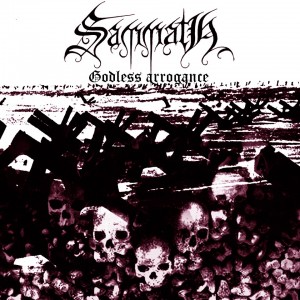 Dutch-German blazing black metal act Sammath, who are preparing to unleash their fifth album, Godless Arrogance, have signed to worldwide metal music label Hammerheart Records for the release of that album.
Dutch-German blazing black metal act Sammath, who are preparing to unleash their fifth album, Godless Arrogance, have signed to worldwide metal music label Hammerheart Records for the release of that album.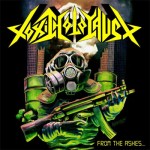 Toxic Holocaust – From the Ashes of Nuclear Destruction: This is not bad music, but it’s an imitation of something in the rearview mirror, which is hard enough without a tendency to combine the worst aspects of several genres. The songs are chaotic like American thrash, but then like German speed metal, they’re very chanty with lots of chorus activity and not much deviation from that rhythm and the chord progression that carries it. In fact, this was the kind of music that back in the 1980s, drove people to Metallica and Slayer for more of a musical experience. Most of what you get with Toxic Holocaust is like a suburban rap album, which is to say that you hear the vocals and pick up their rhythm, and then there’s distracting stuff going on in the background. Whatever the chorus is gets hammered in your brain because it repeats again and again (and again, and again). Riffs are very similar, and derive from identifiable archetypes in classic speed metal songs. Like most of those bands in the 1980s, it’s hard to construct an argument against this. It isn’t musically incompetent, and it’s roughly of the same style, and it’s definitely metally as opposed to the alt-indie-nu crowd. However, really the question is what’s missing, and we can’t spot it because neither it nor an analogue is there. This band lacks purpose. Songs are there to be like other songs, not to express something unique. While nostalgia is neat and all, this puts Toxic Holocaust in the same camp as the big pop bands, who are just making songs to sound like other successful songs, be catchy and make people dance.
Toxic Holocaust – From the Ashes of Nuclear Destruction: This is not bad music, but it’s an imitation of something in the rearview mirror, which is hard enough without a tendency to combine the worst aspects of several genres. The songs are chaotic like American thrash, but then like German speed metal, they’re very chanty with lots of chorus activity and not much deviation from that rhythm and the chord progression that carries it. In fact, this was the kind of music that back in the 1980s, drove people to Metallica and Slayer for more of a musical experience. Most of what you get with Toxic Holocaust is like a suburban rap album, which is to say that you hear the vocals and pick up their rhythm, and then there’s distracting stuff going on in the background. Whatever the chorus is gets hammered in your brain because it repeats again and again (and again, and again). Riffs are very similar, and derive from identifiable archetypes in classic speed metal songs. Like most of those bands in the 1980s, it’s hard to construct an argument against this. It isn’t musically incompetent, and it’s roughly of the same style, and it’s definitely metally as opposed to the alt-indie-nu crowd. However, really the question is what’s missing, and we can’t spot it because neither it nor an analogue is there. This band lacks purpose. Songs are there to be like other songs, not to express something unique. While nostalgia is neat and all, this puts Toxic Holocaust in the same camp as the big pop bands, who are just making songs to sound like other successful songs, be catchy and make people dance.  Soen – Cognitive: Somehow, people say they’re doing what they’re afraid they’re not doing. Soen is nu-progressive metal, which means that it’s basically a very vocals-intense, “passionate” form of indie rock — think post-1990s style drama-intense male vocalist nonsense — with occasional metal riffs. If you don’t mind the discount Morrisey style vocals, you will not be immediately set off by this album, but the grim fact is that this style of music is easy to produce and bands are a dime a dozen. These “deep” vocals end up sounding more like someone belting out over-emphatic drama, mainly because once you strip aside the technique, there’s little actual variation. The metal riffs can be surprisingly good but not original. It’s amazing how people have been making this style of music for decades and yet it doesn’t occur to each generation that maybe, just maybe, this stuff isn’t as new and revolutionary as it claims. If you like regular rock music, and want it to have more soul-searching vocals that override the other form factors, as in Coldplay, you’ll really dig this. If you’re looking for metal, you’ll end up fast-forwarding between the metal riffs and have a 2.3 minute album here.
Soen – Cognitive: Somehow, people say they’re doing what they’re afraid they’re not doing. Soen is nu-progressive metal, which means that it’s basically a very vocals-intense, “passionate” form of indie rock — think post-1990s style drama-intense male vocalist nonsense — with occasional metal riffs. If you don’t mind the discount Morrisey style vocals, you will not be immediately set off by this album, but the grim fact is that this style of music is easy to produce and bands are a dime a dozen. These “deep” vocals end up sounding more like someone belting out over-emphatic drama, mainly because once you strip aside the technique, there’s little actual variation. The metal riffs can be surprisingly good but not original. It’s amazing how people have been making this style of music for decades and yet it doesn’t occur to each generation that maybe, just maybe, this stuff isn’t as new and revolutionary as it claims. If you like regular rock music, and want it to have more soul-searching vocals that override the other form factors, as in Coldplay, you’ll really dig this. If you’re looking for metal, you’ll end up fast-forwarding between the metal riffs and have a 2.3 minute album here.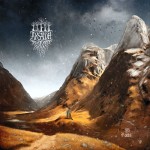

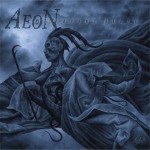 Aeon – Aeons Black: Sounding like later Deicide with influences from the mid-paced death metal of the last decade, Aeon creates some compelling rhythms and uses a heavy NYDM influence through harmonic guitar squeals and repetitive downstroke rhythms. The result is “heavy,” but melody is used only as an effect, and the album is assembled of many similar pieces that lacking a gestalt, flow together into catchy wall paper. The result is thankfully somewhat death metal, but has a newer metal influence, and through its lack of focus, combines different forms and styles into one giant approximation that has no really distinct point of view. It’s like a xerox of a xerox of a photograph of Silly Putty(tm) imprint of the original. While it isn’t incompetent, and has some moments of inspired musicality, it has no content that it manages to express and so it feels like a disorganized detour into the late 1990s, perhaps death metal being used to make an infomercial. I can see the juice machines, instant waffle makers, hair braders, etc. now, because that’s what this album feels like: the shelves of a death metal store, arranged in no particular order, as you walk past and then go out the door, not having found anything worthy of permanent acquisition.
Aeon – Aeons Black: Sounding like later Deicide with influences from the mid-paced death metal of the last decade, Aeon creates some compelling rhythms and uses a heavy NYDM influence through harmonic guitar squeals and repetitive downstroke rhythms. The result is “heavy,” but melody is used only as an effect, and the album is assembled of many similar pieces that lacking a gestalt, flow together into catchy wall paper. The result is thankfully somewhat death metal, but has a newer metal influence, and through its lack of focus, combines different forms and styles into one giant approximation that has no really distinct point of view. It’s like a xerox of a xerox of a photograph of Silly Putty(tm) imprint of the original. While it isn’t incompetent, and has some moments of inspired musicality, it has no content that it manages to express and so it feels like a disorganized detour into the late 1990s, perhaps death metal being used to make an infomercial. I can see the juice machines, instant waffle makers, hair braders, etc. now, because that’s what this album feels like: the shelves of a death metal store, arranged in no particular order, as you walk past and then go out the door, not having found anything worthy of permanent acquisition.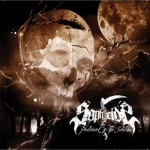
 Tormented – Death Awaits: In 1992, the average death metal fan would walk 30 miles through the snow uphill both ways to hear a new Swedish death metal album. Sometime in the 2000s, Daniel Ekeroth made a handy video about how to get the Swedish guitar sound, and at least 4,096 hipster bands suddenly became Entombed-worship acts. The problem is that they don’t understand why Entombed did what Entombed did, so they’re imitating the appearance of Entombed and then injecting their own motivations into the art. Unforunately for them, their motivations are often what hipster bands want, which is ironic acclaim and something to brag about as they make coffees at the day job. Tormented is a perfect case in point. It’s competent, the riffs are gently melodic at times, and songs hold together thanks to a riff-chorus assembly with transitional riffs worked in. The problem is that these riffs express nothing, so they’re based on existing forms in a “pick one from column A, one from column B, one from column C” approach. This misses the point of death metal, which is to stich riffs together so that they tell a story that expands as the song goes on, then revert to a simplest possible reduction. What is revealed at the center of this music is an obsession with repetitive catchy vocals, and hard rock style relatively immobile riffs, instead of the soaring tremolo architectures that made Swedish death metal great. On the surface, this is pure Swede-worship; underneath, it has more in common with Wolfmother than Entombed.
Tormented – Death Awaits: In 1992, the average death metal fan would walk 30 miles through the snow uphill both ways to hear a new Swedish death metal album. Sometime in the 2000s, Daniel Ekeroth made a handy video about how to get the Swedish guitar sound, and at least 4,096 hipster bands suddenly became Entombed-worship acts. The problem is that they don’t understand why Entombed did what Entombed did, so they’re imitating the appearance of Entombed and then injecting their own motivations into the art. Unforunately for them, their motivations are often what hipster bands want, which is ironic acclaim and something to brag about as they make coffees at the day job. Tormented is a perfect case in point. It’s competent, the riffs are gently melodic at times, and songs hold together thanks to a riff-chorus assembly with transitional riffs worked in. The problem is that these riffs express nothing, so they’re based on existing forms in a “pick one from column A, one from column B, one from column C” approach. This misses the point of death metal, which is to stich riffs together so that they tell a story that expands as the song goes on, then revert to a simplest possible reduction. What is revealed at the center of this music is an obsession with repetitive catchy vocals, and hard rock style relatively immobile riffs, instead of the soaring tremolo architectures that made Swedish death metal great. On the surface, this is pure Swede-worship; underneath, it has more in common with Wolfmother than Entombed.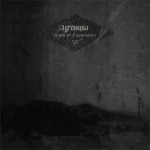 Agrimonia – Rites of Separation: It’s time we admit that post-metal is not metal, but new age metal. Or rather, it’s new age rock that wants to be metal so it can be “rebellious.” Officially rebellious, that is, so that if anyone claims they’re worshipping Satan or extremists, they can point to their soft juicy fruity core of new age everybody-kumbaya-happy. Post-metal not only takes influences from the new age movement and its desire for gentle ambience with some kind of quasi-spiritualist uplifting feeling that makes us feel like our rotting industrial dystopia encloses a paradise of personal emotional balance, positive thinking, etc. This music is like Sonic Youth throwing in some metal riffs and then droning on a note or two, with “bizarre” song structures that are actually very much in the verse-chorus with transitions style of post-punk bands. Nothing is badly done but the music has no soul. Its essence is in tossing out anything it thinks you might like, with no relationship between those parts. Thus it’s like hearing a conversation on the subway, where you pick up on juicy phrases and the rest is hubbub which fades into the ratcheting clack of the passing tracks.
Agrimonia – Rites of Separation: It’s time we admit that post-metal is not metal, but new age metal. Or rather, it’s new age rock that wants to be metal so it can be “rebellious.” Officially rebellious, that is, so that if anyone claims they’re worshipping Satan or extremists, they can point to their soft juicy fruity core of new age everybody-kumbaya-happy. Post-metal not only takes influences from the new age movement and its desire for gentle ambience with some kind of quasi-spiritualist uplifting feeling that makes us feel like our rotting industrial dystopia encloses a paradise of personal emotional balance, positive thinking, etc. This music is like Sonic Youth throwing in some metal riffs and then droning on a note or two, with “bizarre” song structures that are actually very much in the verse-chorus with transitions style of post-punk bands. Nothing is badly done but the music has no soul. Its essence is in tossing out anything it thinks you might like, with no relationship between those parts. Thus it’s like hearing a conversation on the subway, where you pick up on juicy phrases and the rest is hubbub which fades into the ratcheting clack of the passing tracks.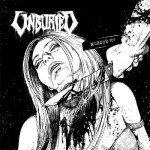
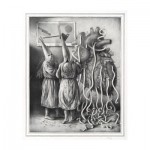
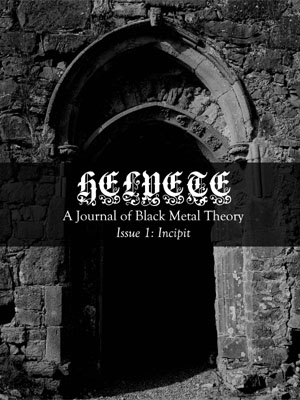 As part of the burgeoning movement to understand metal and how it relates to the world, comes the first issue of
As part of the burgeoning movement to understand metal and how it relates to the world, comes the first issue of 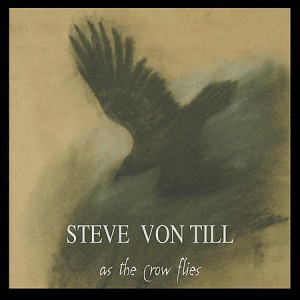 It is one thing to become acknowledged within your genre as a leader. It is still another to reach outside that genre, and become more than an artist, but a sage.
It is one thing to become acknowledged within your genre as a leader. It is still another to reach outside that genre, and become more than an artist, but a sage.  During the early 1990s, death metal was subject to criticism because people feared it. They would claim that the bands couldn’t play, or didn’t know their scales, or were otherwise incompetent.
During the early 1990s, death metal was subject to criticism because people feared it. They would claim that the bands couldn’t play, or didn’t know their scales, or were otherwise incompetent.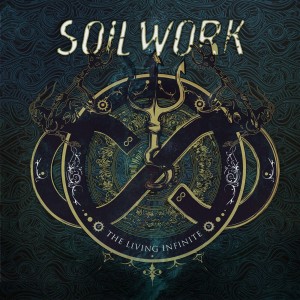 If you ever find yourself wondering why mainstream music produces so many professional and well-produced acts while metal seems pasted-together in comparison, worry no more: Soilwork has invented a new form of radio-friendly metal that competes with the big bands you can hear on the radio.
If you ever find yourself wondering why mainstream music produces so many professional and well-produced acts while metal seems pasted-together in comparison, worry no more: Soilwork has invented a new form of radio-friendly metal that competes with the big bands you can hear on the radio.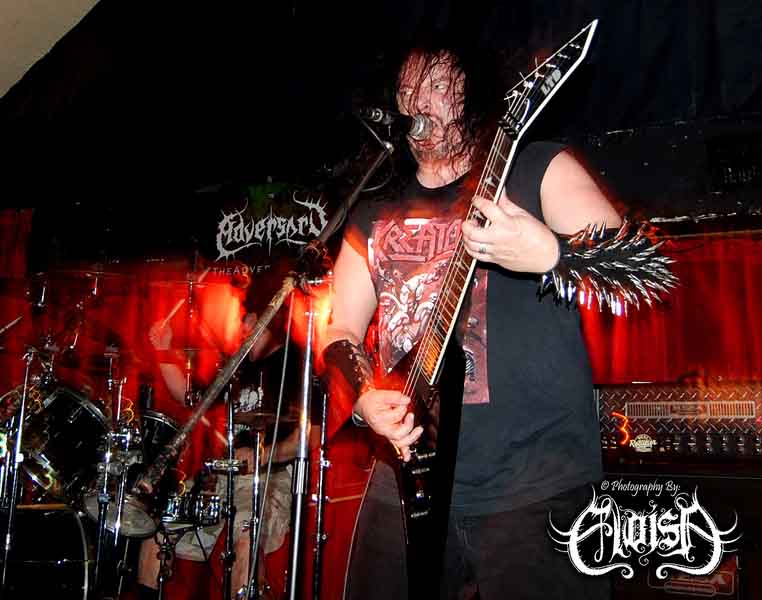 Tom Stevens has been providing technical extreme metal since the 80s. Known as a virtuoso on guitar and owning the distro/label Nokturnel Eclipse, he’s been a supporter of the old school since it began. Though Nokturnel has gone through numerous line-up changes, Stevens has defied odds and kept the flame burning with an indomitable urge to shred.
Tom Stevens has been providing technical extreme metal since the 80s. Known as a virtuoso on guitar and owning the distro/label Nokturnel Eclipse, he’s been a supporter of the old school since it began. Though Nokturnel has gone through numerous line-up changes, Stevens has defied odds and kept the flame burning with an indomitable urge to shred.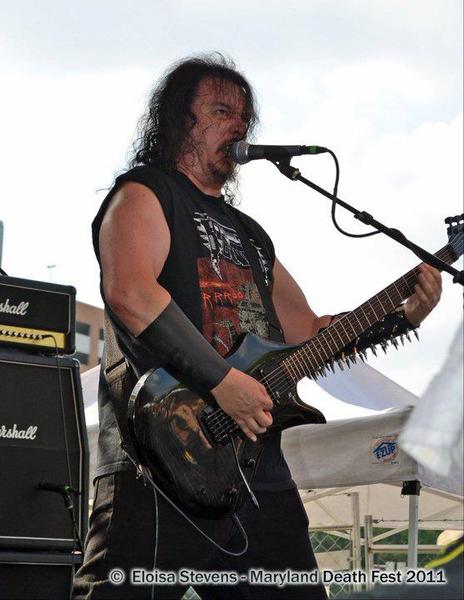 I haven’t heard much on Nokturnel since your last recording ‘Ancestral Calling’. What have you been up to?
I haven’t heard much on Nokturnel since your last recording ‘Ancestral Calling’. What have you been up to?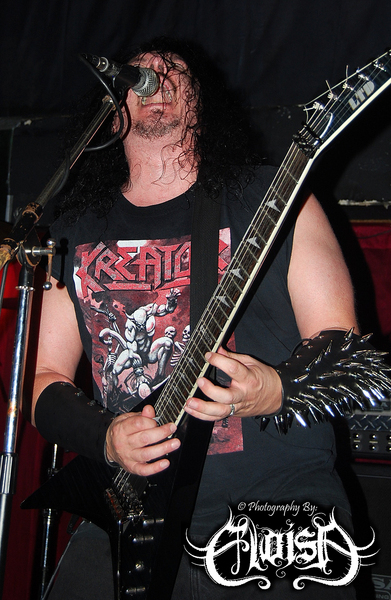 You played with Incantation for a while. What was it like touring with them? Any highlights that you’d like to share?
You played with Incantation for a while. What was it like touring with them? Any highlights that you’d like to share?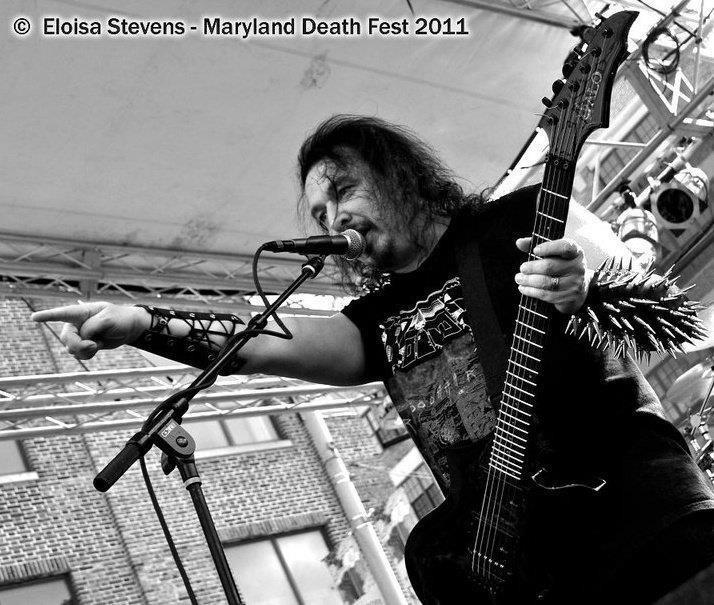 Please detail your contributions to Ripping Corpse. Are you still friends with Erik Rutan?
Please detail your contributions to Ripping Corpse. Are you still friends with Erik Rutan?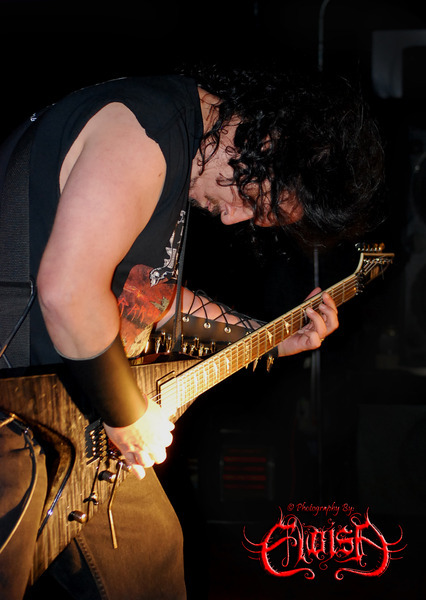 How long have you played guitar? You’re quite an amazing musician. What type of equipment, guitars, strings, etc do you use? What type of equipment would you recommend to new guitarists that are just starting out?
How long have you played guitar? You’re quite an amazing musician. What type of equipment, guitars, strings, etc do you use? What type of equipment would you recommend to new guitarists that are just starting out?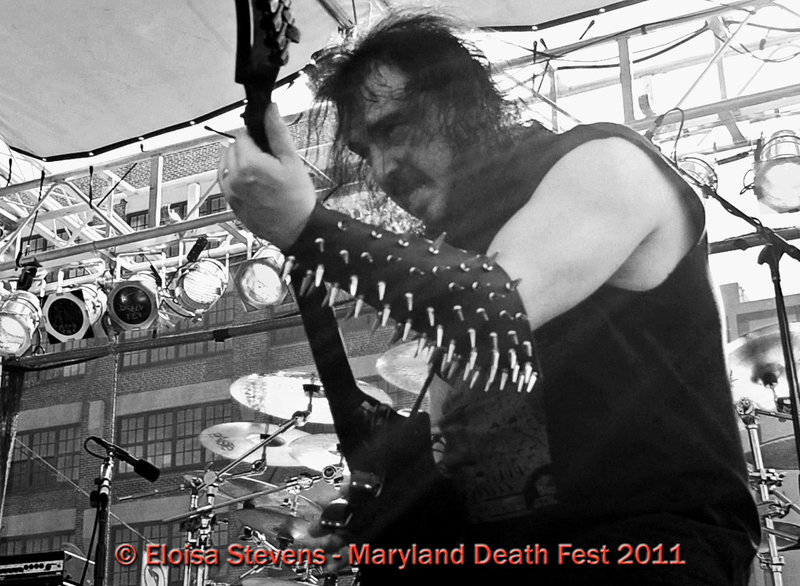 How well was the single “Ancestral Calling” received? What inspired you to write it? The riffs don’t seem to differentiate much, but the technical ability is amazing. How did you approach this song? What was your mindset? How will Nokturnel top this song in the future?
How well was the single “Ancestral Calling” received? What inspired you to write it? The riffs don’t seem to differentiate much, but the technical ability is amazing. How did you approach this song? What was your mindset? How will Nokturnel top this song in the future?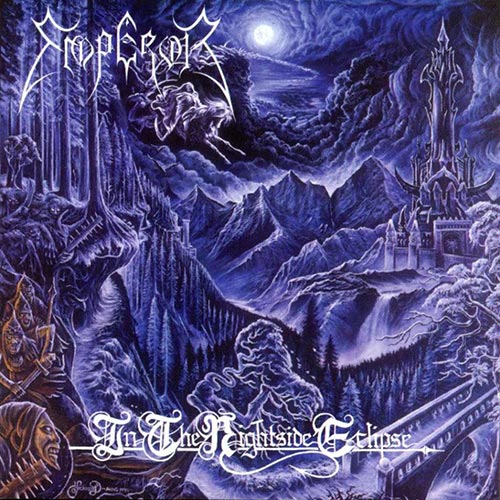
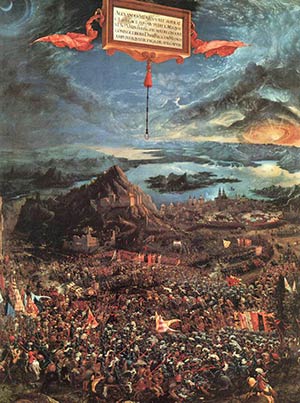 Some of its style and composition takes me back to Albrecht Altdorfer’s anachronistic oil painting The Battle of Alexander at Issus (1529), but true to the bleak genre of black metal the cover of ItNE is practically monochrome, which is rather typical of Wåhlin’s paintings at large (as seen in his paintings for
Some of its style and composition takes me back to Albrecht Altdorfer’s anachronistic oil painting The Battle of Alexander at Issus (1529), but true to the bleak genre of black metal the cover of ItNE is practically monochrome, which is rather typical of Wåhlin’s paintings at large (as seen in his paintings for 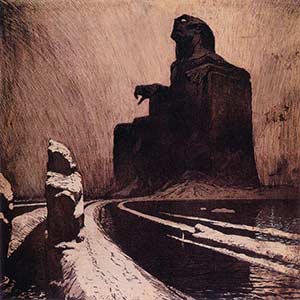 I always assumed that the otherworldly castle and the winding path leading to it were reminiscent of that of a certain bloodsucking count. This is probably no coincidence: have a look at the lyrics of the song Beyond the Great Vast Forest. Not only does it refer to Werner Herzog’s film Nosferatu (1979); parts of the story of the over-the-top film Bram Stoker’s Dracula (1992) – which was immensely popular around the time of ItNE’s inception – had also found its way into the lyrics, and the solitary structure of that film’s castle and its inspiration, František Kupka’s The Black Idol (1903), somewhat parallels the idea of the castle on display here.
I always assumed that the otherworldly castle and the winding path leading to it were reminiscent of that of a certain bloodsucking count. This is probably no coincidence: have a look at the lyrics of the song Beyond the Great Vast Forest. Not only does it refer to Werner Herzog’s film Nosferatu (1979); parts of the story of the over-the-top film Bram Stoker’s Dracula (1992) – which was immensely popular around the time of ItNE’s inception – had also found its way into the lyrics, and the solitary structure of that film’s castle and its inspiration, František Kupka’s The Black Idol (1903), somewhat parallels the idea of the castle on display here. Industrial metal band
Industrial metal band 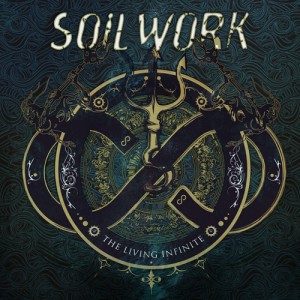 Modern metal-indie hybrid
Modern metal-indie hybrid 
